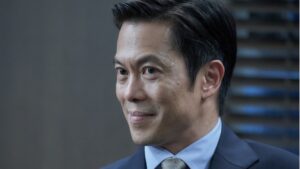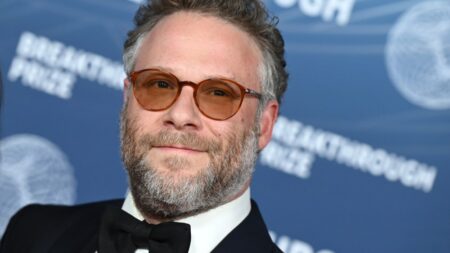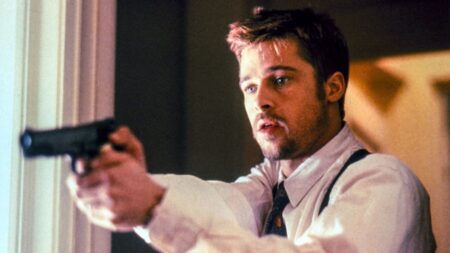Byron Mann‘s debut in Korean cinema has proven that cross-cultural casting can pay off at the box office.
The actor’s new film “Big Deal” opened at No. 3 in South Korea, landing just behind “Mission: Impossible – The Final Reckoning” in a competitive marketplace.
For Mann, whose credits span from Adam McKay’s “The Big Short” to Netflix’s “Altered Carbon” and productions across Asia including the Hong Kong-set romantic comedy “The Modelizer,” the Korean film marked a unique experience that required him to completely overhaul his character’s dialogue while navigating an unfamiliar production system.
“When they reached out to me, I actually thought they made a mistake,” Mann tells Variety. “I thought, ‘You know they know I don’t speak Korean, right? I mean, they know I’m not Korean either, right?’”
The confusion cleared up once Mann and his manager read the script. His character in “Big Deal” is an investment banker from New York and Hong Kong in a story loosely based on real events involving one of Korea’s biggest soju companies in 2003. The director had seen Mann’s work in “The Big Short” and felt he was right for the role.
Mann’s first major contribution to the production was extensive script work. Having worked across Asia in Thailand, mainland China, Hong Kong, and Indonesia, he recognized the common pitfalls of translated dialogue.
“Usually when you translate like that, you lose a lot of meaning, you lose a lot of juice, and first of all, the dialogue doesn’t sound right,” Mann explains. “I think I had to work for a month, like every day, to work with the production, the director, producer.”
The process involved understanding the Korean team’s intentions for each scene and line, then translating those concepts into natural English vernacular specific to how an investment banker would speak. “Every line, every scene, I had to first of all understand what they were thinking. Then I had to translate it, spit it out in English.”
The effort paid off. After seeing the finished film in Korea, Mann says he’s “very pleased” with how the English dialogue flows naturally, adding that it will help the film resonate when it travels to English-speaking markets.
Working within Korea’s production system revealed fascinating differences from Hollywood practices. On his first night in Seoul, Mann received what he initially thought was a Japanese manga book but turned out to be detailed storyboards for the entire film.
“Midway through the shoot, I realized that they’re actually shooting literally according to the storyboard in the book, frame by frame,” Mann recalls. The practice, he learned, has become standard in Korean filmmaking over the past 8-10 years, with studios now requiring storyboards for greenlight approval.
Looking forward, Mann sees significant shifts in the industry landscape, particularly in how streaming platforms approach content. “You can see the streamers, particularly Netflix, realize that the world is bigger than just America,” he observes. “I think they spend more resources on the rest of the world than in the United States.”
Post-pandemic cost pressures following the writers’ and actors’ strikes have made Asian productions increasingly attractive to studios seeking efficiency. “The cost of making a series is going to be a lot cheaper than what you make in the U.S., and if you’re able to tell an equally exciting story in Asia, that’s probably the way to go.”
This economic reality aligns with Mann’s recent career focus on what he calls “Hollywood films that take place in Asia.” He recently completed “The Modelizer,” a romantic comedy shot entirely in Hong Kong, and has several similar projects in development.
Having worked with directors ranging from Adam McKay to various Asian filmmakers, Mann has observed distinct cultural approaches to performance and production. “Adam McKay is very loose and improvisational,” he notes, while Asian directors often emphasize action and “a little bit more posturing.”
Western directors, Mann suggests, tend to expect actors to arrive fully prepared with homework completed for the entire project, while some Asian productions allow for more flexibility and star input during filming.
Mann is preparing to announce his next project. Meanwhile, his completed action thriller “Kill Him ‘Til He’s Dead” is in post-production for a later 2025 release. The film features Mann in seven different roles, which he describes as “very groundbreaking” and “fun.”
His current focus continues to center on “telling stories that happen in Asia, or Asian stories, and infusing it with Hollywood expertise.”
“Big Deal” is currently on release in the U.S., Canada and Korea.
Read the full article here








